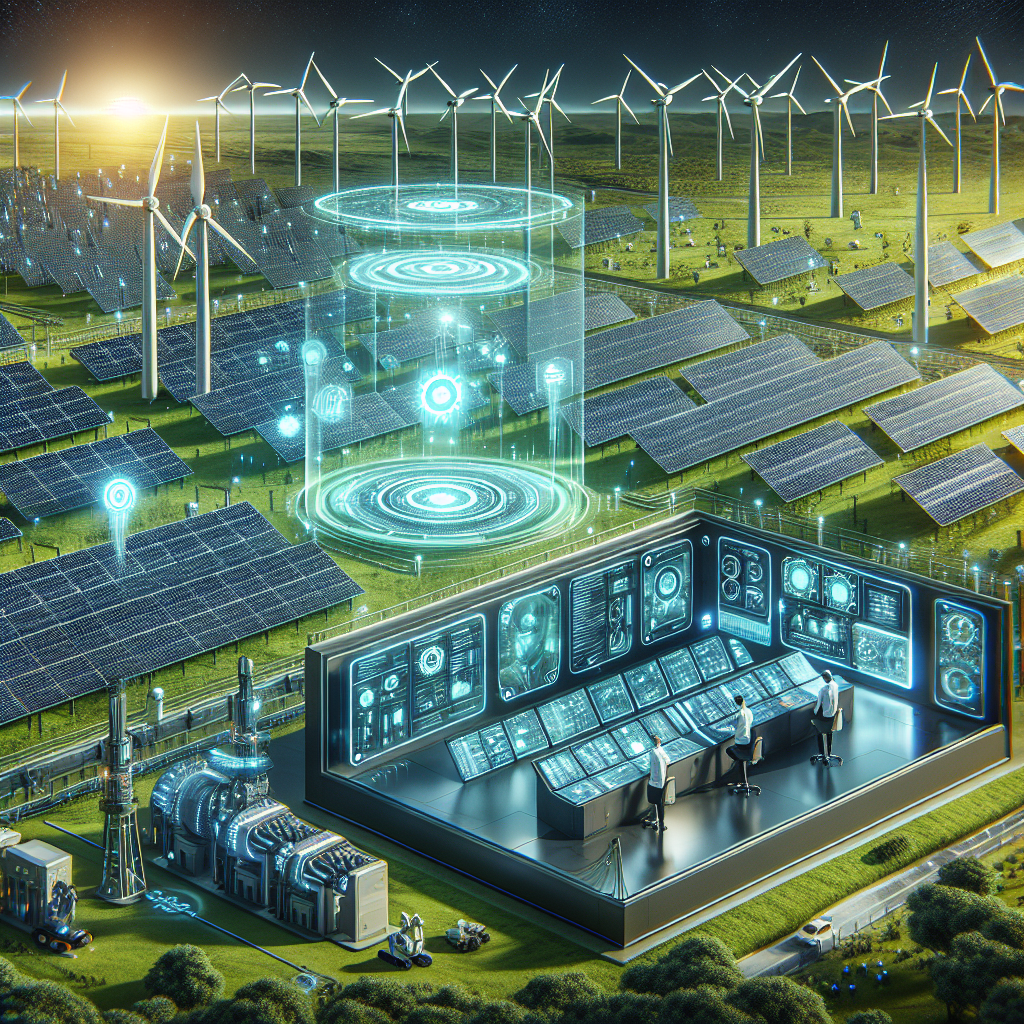Artificial Intelligence (AI) is revolutionizing the energy sector by increasing sustainability and efficiency in power generation, distribution, and consumption. With the global push towards renewable energy sources and the need to reduce carbon emissions, AI deployment in the energy industry has become increasingly important. From optimizing energy production to predicting demand patterns, AI is playing a crucial role in shaping the future of energy sustainability.
AI Deployment in Energy Generation
AI technologies are being used to optimize energy generation from renewable sources such as solar, wind, and hydro power. By analyzing weather data, energy production patterns, and grid demand, AI algorithms can predict the optimal times for energy production and storage. This enables energy companies to maximize the use of renewable energy sources and reduce reliance on fossil fuels. AI can also help in monitoring and maintaining renewable energy assets, such as wind turbines and solar panels, to improve their efficiency and longevity.
AI Deployment in Energy Distribution
AI is also being used to optimize energy distribution by predicting demand patterns and grid congestion. By analyzing historical data and real-time information, AI algorithms can forecast energy demand and adjust supply accordingly. This helps in reducing energy wastage and improving the overall efficiency of the grid. AI can also detect anomalies and potential failures in the grid infrastructure, enabling energy companies to take proactive measures to prevent blackouts and other disruptions.
AI Deployment in Energy Consumption
AI technologies are being deployed to optimize energy consumption in buildings, industries, and transportation. Smart meters, sensors, and IoT devices are being used to collect data on energy usage patterns, which is then analyzed by AI algorithms to identify opportunities for energy savings. AI can help in optimizing heating, cooling, and lighting systems in buildings, as well as in managing energy-intensive processes in industries. In transportation, AI-powered algorithms can optimize routing and scheduling of vehicles to reduce fuel consumption and emissions.
Benefits of AI Deployment in Energy
The deployment of AI in the energy sector offers several benefits, including:
1. Increased Sustainability: AI technologies enable energy companies to optimize the use of renewable energy sources, reduce carbon emissions, and increase energy efficiency.
2. Cost Savings: By optimizing energy production, distribution, and consumption, AI can help in reducing operational costs and increasing profitability for energy companies.
3. Improved Grid Resilience: AI algorithms can help in detecting and mitigating grid failures, reducing the risk of blackouts and other disruptions.
4. Enhanced Customer Experience: AI-powered solutions can provide customers with real-time energy usage data, personalized recommendations for energy savings, and improved service reliability.
5. Accelerated Innovation: AI deployment in the energy sector is driving innovation in renewable energy technologies, grid infrastructure, and energy management systems.
FAQs
Q: How is AI being used in renewable energy production?
A: AI technologies are being used to optimize energy production from renewable sources such as solar, wind, and hydro power. By analyzing weather data, energy production patterns, and grid demand, AI algorithms can predict the optimal times for energy production and storage.
Q: How can AI help in reducing energy wastage in buildings?
A: AI technologies can optimize heating, cooling, and lighting systems in buildings by analyzing energy usage patterns and identifying opportunities for energy savings. Smart meters, sensors, and IoT devices are used to collect data on energy consumption, which is then analyzed by AI algorithms.
Q: What are the benefits of AI deployment in the energy sector?
A: The deployment of AI in the energy sector offers several benefits, including increased sustainability, cost savings, improved grid resilience, enhanced customer experience, and accelerated innovation in renewable energy technologies.
In conclusion, AI deployment in the energy sector is increasing sustainability and efficiency in power generation, distribution, and consumption. By optimizing energy production, distribution, and consumption, AI technologies are helping energy companies reduce carbon emissions, increase energy efficiency, and improve grid resilience. The benefits of AI deployment in the energy sector are significant, and the potential for further innovation and growth in this area is promising.

